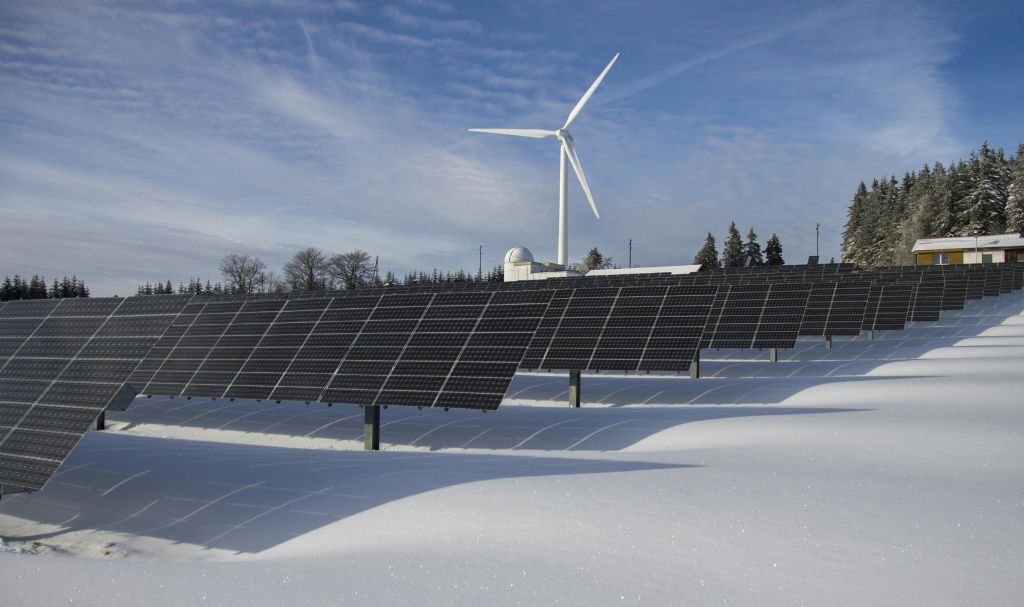How Solar Companies Are Helping Small Businesses Thrive?
17 April 2025
5 Mins Read

toc impalement
Solar Energy for Businesses involves using renewable and other types of clean energy for production and general operations. Is it a new trend or there is a deeper corporate purpose to it?
Experts say that is a futuristic business decision. They also state that most consumers want brands with a social business model. So doing that extra bit for a social change will let them stand apart from the competition. The edge that it will give a business is enough to slay at least 50% of the competition.
Certainly, at least 65% of the small businesses are trying to turn their businesses into more sustainable operations. But what’s the most popular sustainability measure among small businesses?
According to Investopedia, at least 60% of small companies and startups are investing in solar energy. But why? I mean, what value addition comes from shifting to solar energy?
Value Additions of Solar Energy for Businesses

Firstly, solar energy will stabilize your expenses. And you know that managing expenses is a crucial part of handling a small business. Usually, funds are limited. And having means that can cut off extra cost baggage are always welcome.
Secondly, your carbon footprint will be low since day 1, if you are solar solar-powered company. Thirdly, you can be a part of a culture that supports long-term resilience in business. There is a legion of ethically responsible companies that focus closely on the triple bottom line. You can take the names of companies like TOMS or Patagonia for that matter.
However, none of the big brands like Apple, Amazon, Walmart, and others use 100% solar energy. So here is your chance to make a big solar-charged company. Let’s get to know more about the proposition.
Clean Energy as a Business Strategy
Did you know that ethical businesses attract at least 25% more consumers? If you want other reasons to invest in Solar Energy for Businesses, here they are:
1. Lowering Energy Costs to Strengthen Profit Margins
For small businesses, monthly overhead expenses can make or break profitability. Energy bills, which fluctuate depending on season, demand, and rate hikes, are volatile in operating costs.
Solar power allows business owners to generate electricity and significantly reduce reliance on traditional energy providers. By installing solar panels, they can offset a large portion of their usage or, in some cases, eliminate utility bills.
This predictable energy production gives them more control over budgeting and frees up capital for investment in other business areas. Solar companies increasingly provide tailored solutions that consider the specific hours of operation, equipment used, and available roof or land space.
Financial incentives, grants, and tax credits often make the initial investment far more affordable than most business owners expect. Programs through companies like North Valley Solar Power are gaining attention. They work directly with entrepreneurs. Most importantly, they structure systems that match their energy consumption. Their projects also offer clear cost-saving outcomes.
2. Boosting Brand Image and Customer Loyalty
Today, 85% of the existing and almost 100% of the new consumers are ethically aware. But what does they mean?
In other words they care about what their brand does other than production or service provision. I mean they closely scrutinize the brand’s activities. They favor sustainable brands that care for the triple bottom line.
If you don’t know what that means, it is a model that ethical businesses use. There are three components of the model:
- People
- Planet
- Profit
In simple words, the model says that you must do something more as a business, other thsn profit making. You may indulge in things that make the planet more sustainable. For example, you can do a campaign against deforestation. Or shift to renewable power like solar energy.
Thirdly, you need to think about the people too. In other words, you must have ethical HRD practice in your company. You might also do charitable services as a part of the triple bottom line approach.
Companies llike Verizon, Coca Cola and GE have a lot of charitable projects ongoing. But at least 90% of the smalle brands are trying to shift to solar energy for businesses.
Solar companies are increasingly helping small businesses share their energy journey by offering digital monitoring dashboards, branding support, and certifications that business owners can proudly display.
3. Increasing Property Value and Long-Term Business Resilience
Many small businesses own their buildings or land, making solar energy a property-enhancing investment. Like homebuyers seek energy-efficient homes, commercial property values benefit when installing solar systems.
This added value is essential for long-term business planning—should the owner decide to sell, lease, or refinance, a solar-powered property can attract more interest and potentially command a higher price. Beyond resale value, solar energy contributes to resilience. Power outages can disrupt operations, damage inventory, or temporarily shut down a business.
A solar system with battery storage allows enterprises to stay operational during blackouts, maintaining critical services and preventing revenue loss. For industries like food service, hospitality, or healthcare, this level of energy independence is valuable and necessary.
By building resilience through solar, businesses create a layer of security that supports continuity and customer service, even in the face of external disruptions or natural disasters.
4. Simplifying the Transition Through Flexible Solar Solutions
At first, you may find it challenging to shift into a solar company. However, there are easy means of investing in solar energy for businesses.
There are a lot of solar power agencies trying to offer solar power services for small companies at a low cost. So, it is wise to hire such agencies. At the same time, it is true that entrepreneurs have to manage a lot of avenues simultaneously. So, it would be challenging for them if they have to make major adjustments to shift to solar power.
But that’’s where the solar power companies come in. they will evaluate your business site and come up with solution tailored for you. They will also show you the proportion of savings that you can manage with a solar power transition.
Meanwhile, there are easy loans and financing options for small businesses planning to install solar power. It might be a government subsidy. Often, big investors or other big corporate brands offer help to small companies as a part of their CSR ventures.
Ready To Invest in Solar Energy for Businesses?
Solar companies are becoming valuable allies to small business owners. They are offering more than just energy systems. Firstly, they find out a way to cut costs, improve brand reputation, and strengthen long-term business operations. So, are you ready to use solar energy for businesses going forward?
As clean energy adoption becomes more feasible and financially attractive, solar power is no longer reserved for large corporations or environmentally focused startups. It’s becoming a key strategy for independent businesses that want to stay competitive, resilient, and responsible.
Whether in retail, food service, agriculture, or professional services, small businesses are discovering that solar energy aligns with their values and bottom line.
With support from knowledgeable providers, tailored systems, and financial tools that reduce risk, the transition is more accessible than ever. Solar companies will remain central to helping businesses adapt, thrive, and lead in their communities as the energy landscape continues to evolve.
Clean energy is not just the future of power—it’s the future of successful local enterprise.

















